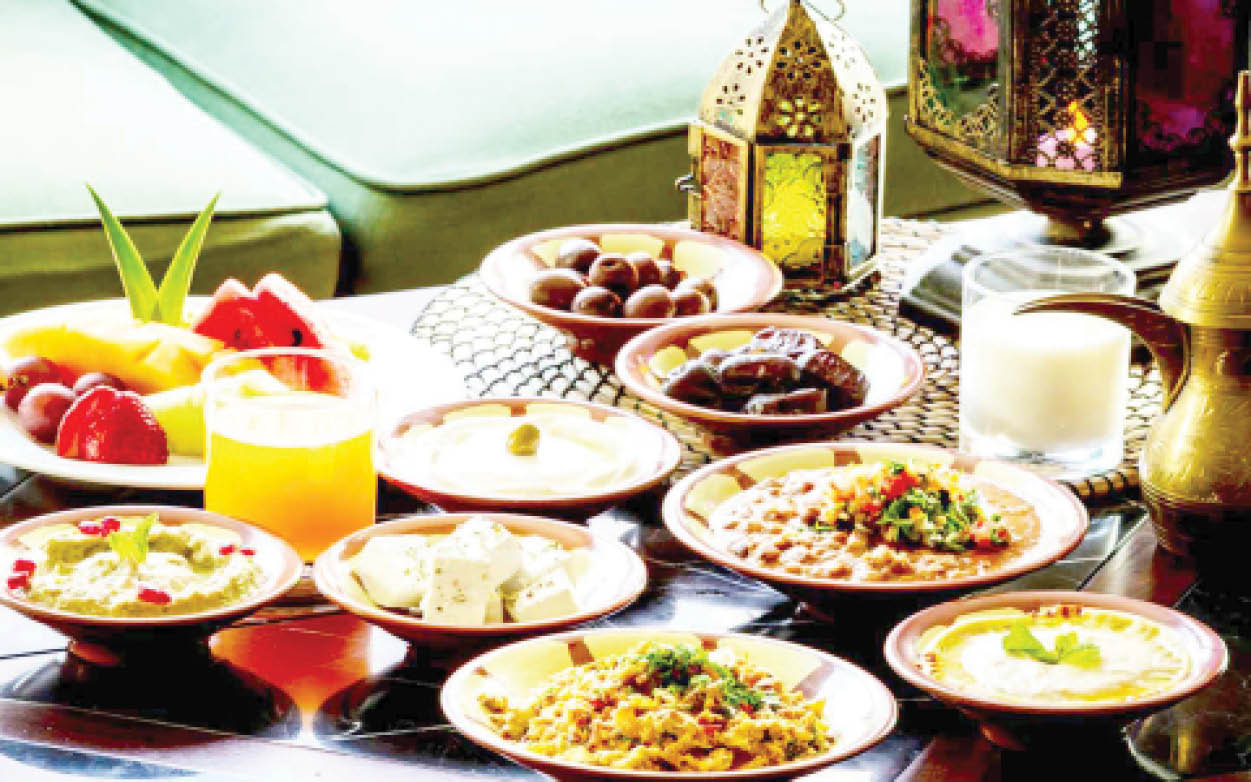- Why people add weight during fasting
Ramadan fast is a spiritual obligation for Muslims to abstain from all food and drinks from dawn to sunset for 29/30 days.
A medical doctor at the Bauchi Specialist Hospital, Dr Suleiman Auwal, said the health benefits of fasting include weight loss, decreased risk of metabolic diseases such as diabetes mellitus, significant benefits to cancer patients, and improving overall fitness.
Others are; it protects the fasting person from obesity, boosting cognitive performance, decreased risk of chronic illness and boosting immunity.
Dr Auwal said breastfeeding mothers are medically advised not to fast because, during breastfeeding, the metabolic demands of the mother increases because she is feeding two lives – hers and the baby’s.
He said this is coupled with the stress she goes through during pregnancy. Therefore the mother needs additional nutritional support apart from her routine meal.
“The aged (elderly people are also not advised, medically, to fast for obvious reasons – as age advances, metabolic demand of the body increases and without proper nutritional support, the immunity which is, of course, fragile in the elderly, will certainly go down and the person is at risk of developing many serious health issues, among them severe bacterial and viral infections,” he explained
Dr Auwal said people should also avoid overfeeding during Ramadan.
“What that means is that from the time you break your fast to the time you are going to sleep, one should try and space your meals. Do not just dump everything at the same time as that will make it difficult for the body system to metabolize and absorb what is suitable for the body. As a rule, make it more of fruits and liquid meals, moderate carbohydrate and proteins.
“You see, health is not just the absence of sickness or infirmity but a complete physical, mental and social well -being
“It is difficult to advise a general population of what to do to remain healthy but adhering to the nutritional advice has been found to improve one’s health during fasting,” he added.
A dietitian, Ibrahim Muhammed Lade, said since Ramadan fasting is complete abstinence from eating and drinking for more than 12 hours, by that time, the glucose level of the fasting person is very low. He added that “definitely that particular person needs to meet the daily requirements. There is what we call a daily dietary requirement and any person who is fasting needs to know them.”
So by the time you come to break the fast, you should not take the whole food at once but gradually because if your stomach is empty and all your small intestines have shrunk, you need to take it gradually. When breaking the fast, you start with something liquid, like water, particularly warm water; because of the fact that the weather is hot, you should be careful with taking cold water.
Lade, who is also the Head of Department of Nutrition and Dietetic Department, Abubakar Tafawa Balewa Teaching Hospital (ATBU-TH), said if one must break with cold water, it should be gradual and not a full cup of cold water at once because that might weaken the body and make one restless.
“It can also prevent you from taking the food prepared for breaking the fast. Warm water softens your stomach and allows your system to receive other foods you prepared for breaking the fast gradually.
“If you have fruits you can also start with fruit; other foods like pap and anything you want to eat should be gradual and not at once because the digestion of all the carbohydrates takes not more than two hours.
“Please don’t be loading too much at a time because if you take much you become weak and you cannot perform other Ibadat (worship) and at the end, you get on sleeping. It is also not advisable to eat immediately and sleep,” he advised.
Lade explained that Ramadan fasting has some health benefits from the nutritional angle. “If you take your breakfast (Sahur) adequately and also take your Iftar gradually with a combination of solid foods to enable you to regain the daily recommended allowance you need.”
He said Ramadan prevents you from unnecessary eating and also allows your stomach to digest almost all that you eat and your body to make use of it completely without punishing the system.
He added “that the human body is like an engine: when you load it too much, it will just use what it can take and store the rest as glycogen. Later if it is in need, it will convert it back to glucose, lactogen and use. When you are fasting you won’t have such a storage process, whatever you eat will digest gradually and the body makes use of it accordingly. It will take care of your organs and you thereby have less problems.”
Lade also advised that if a woman is pregnant she needs to increase her calorie requirement at least by 200 to 500 calorie per day based on her weight.
“During lactation, her calorie requirement needs to be increased too. Such people if they are fasting will cause problems to their pregnancy. Definitely, they need to stop fasting.
“If they cannot meet their daily dietary requirement, it will affect their fetus. They are supposed to stop fasting likewise breastfeeding mothers. If they are not feeding well and the baby cannot get the required food, she needs to stop fasting to save the life of the baby.
“Once you lose your glucose level, you become weak, so for a nursing mother, if you don’t have enough energy it becomes a problem. The brain cannot work without glucose. Once you don’t have glucose adequately in your brain, you start having confusion, trauma and can even enter into a coma,” Lade added
Another dietitian, Alaba Fumilola, who also works at ATBU-TH, said many people misuse the Ramadan fasting period by overeating when they want to break the fast. “You see this body, you cannot overfeed it and stay healthy. When you want to take pap, you want to eat rice and also want to take tuwo at the same time – the body doesn’t need that.”
He said during Ramadan fast some people add weight due to overeating.
“When you are fasting you eat moderately. Incorporate all classes of food including carbohydrates, protein, fat and oil, vitamins, minerals and water in what you are eating.
“For example, if you want to eat rice you must have your meat or fish inside and the oil used in cooking as well as vegetables that are coming with other minerals and vitamins and water.
“You find some people putting kunu, zobo and rice at the same time. That is not taking all the classes of food but rather rolling around one class of food. You need to have all the classes of food in what you want to eat if you are fasting,” she said.
Fumilola also said people should not stop exercising their body during fasting. “You don’t need to stay in one place or office because you are fasting without stretching your legs. The body needs exercise during fasting but you should not do vigorous exercise if you are fasting.”
She said there are health implications for young mothers who are excluded from fasting but still insist on doing it.
“Such women join the fast not minding depriving their babies the right nutrients at that particular time. As you are not eating the child will not get the right nutrients,” she said.



